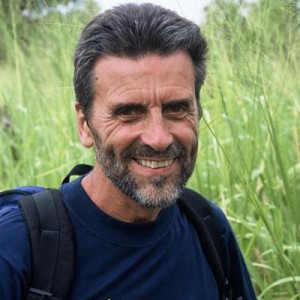Workshop-1: Building Ethical Electronics – How to design out corruption, conflict, labor and humanitarian abuses in electronics?
Le-Marie Thompson
Date: May 31, 3:15 PM – 4:30 PM
Abstract
From smart phones to smart homes, consumer electronics is everywhere. Using electronic devices has become a way of life for many. These devices provide convenience of communication for displaced communities. They serve as a platform to aid commerce. However, many of our everyday electronics are made under conditions of instability, of corruption, conflict, labor and humanitarian abuses.
These conditions can be seen in the issue of conflict minerals in electronics. In the Democratic Republic of Congo (DRC), conflict has been found in the procurement of Tin, Tungsten, Tantalum and Gold (also known as 3TG) from mineral mines. Conflict conditions, such as forced labor, child labor, sexual exploitation and rape have negatively affected the daily lives of local people. Over the 10 years of conflict stemming from the 1998 civil war, the DRC has experienced loss of over 5.4 million lives. Communities are still very vulnerable to conditions that violate human rights.
International efforts are underway to make sure companies are not financially supporting efforts that perpetuate conflict. The United States has instituted a Conflict Mineral Provision in its 1502 Dodd-Frank Finance Act. Also the European Commission has proposed regulations on conflict minerals. The OECD has provided guiding principles on due diligence for responsible supply chains. These action touch upon the legal and financial obligations for companies to address conflict minerals in electronics. Is there a role for the engineer in this type of effort?
In this workshop we will explore the role of the engineer in the design of electronics free from conditions that violate human rights. Participants are encouraged to explore the nature of their role and responsibility in assisting companies comply with international regulations. Also, the workshop will highlight how ethically minded engineers, with their efforts, can assist vulnerable populations in rebuilding their lives.
Le-Marie Thompson
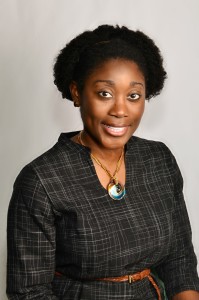
Le-Marie Thompson is a technologist passionate about innovation and its trans-formative effects on local communities. She founded, Nettadonna in 2012, a sustainable product development company committed to global stewardship of technology practices that foster responsible management of the world’s resources. Ms. Thompson has lead the development of innovative products and services in the wire-line, wireless and satellite industries. Working with partners across the globe, she has successfully executed diversified plans which have launched ground-breaking solutions into the market place. She is a product visionary and sought after professional dedicated to building effective teams and products that will shape the world.
Additionally, Ms. Thompson is an advocate for freedom of the Internet. She currently serves as a Council Member for the Washington, DC Chapter of the Internet Society. Also, she has been selected by the United Nations Office for Partnerships as an Ambassador to the World Summit on Innovation & Entrepreneurship (WISE). In 2014, Ms. Thompson was selected by Fast Company as one of the 100 Creative People in Business, as well as in Social Good.
Ms. Thompson holds a Bachelor’s of Science degree in Electrical Engineering from the University of Maryland and a Masters of Arts in Communication, Culture and Technology from Georgetown University. She loves learning languages and has a knowledge of basic Spanish, French, Italian and Hindi.
Workshop-2: Intelligent Communities – The Next Transformation of the Urban Landscape
How advanced is your community?
Peter MacKinnon and Barry Gander
Date: June 1, 3:30 PM – 5:00 PM
Abstract
The creation of Intelligent Communities is a central transforming event of our lifetime. Cities the world over are faced with recurring and emerging problems with infrastructure, services, governance, economic and social development, and land use; to name a few key challenges. Only through the coordinated use of information and communications technologies (ICT) can these challenges be addressed.
‘Smart’ is a synonym for ‘intelligent’, or more practically, using the power and pervasiveness of ICT to assist in addressing the myriad of urban challenges in more efficient, effective and transformative ways. Metaphorically, ICT provides the plumbing and the pump house powering the next transformation of the urban landscape.
‘Smart’ cities use ICT to transform and unify all sectors of the community. This creates capacity and in so doing enables new ways to make discoveries about the urban landscape, and to develop knowledge-based solutions for sustainable competitive advantages. A ‘smart’ community uses connectivity to spur collaboration within and among local groups involved in knowledge-based services, digital creativity, and social inclusion and business. In doing so, evidence shows above average rates of economic growth, job creation, social diversification, environmental innovation and overall urban resilience.
This workshop builds on the previous workshops on resilience and community engagement. It will explore the emerging principles that constitute ‘smart’ cities. It will describe the key transformative characteristics needed to become a ‘smart’ city and it will illustrate these with case studies arising by migrating into a ‘smart’ city posture. This will include examples of how ICT, in a ‘smart’ city context, addresses many of the thematic topics of this Conference.
However, creating and operating ‘smart’ city ICT infrastructure goes well beyond the bounds of technology for the sake of technology. Technology is the servant when aligned with effective leadership, open data policies, collaborative business models and community and industry engagement. These too will be explored and stressed as vital elements of a ‘smart’ city landscape.
Peter MacKinnon
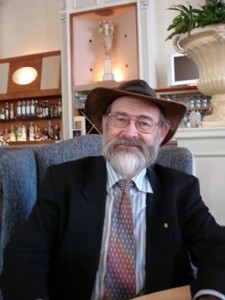
Peter MacKinnon is a management consultant and academic. He has a professional background built on a wide range of experiences derived from holding positions as a scientist, business manager, entrepreneur, bureaucrat, executive, diplomat, management advisor and academic. He seeks to make a positive difference in all of his undertakings.
His experience spans the globe and includes working for a wide range of public and private organisations in many countries (e.g., Australia, Belgium, Brazil, China, France, ‘Hong Kong’, Germany, India, Italy, Japan, Senegal, Spain, Switzerland, The Bahamas, The Netherlands, United Kingdom, South Africa and the United States, among others). He also represented Canada at the Organisation for Economic Cooperation and Development (OECD) in Paris for five years, were he served on the Information, Computer, and Communications Policy (ICCP) Committee.
He has written many successful business plans, product strategies and business and academic proposals, resulting in the raising of hundreds of millions of dollars. He works with diverse groups of stakeholders in a number of economic sectors (e.g., healthcare, natural resources, education, security and defence, and manufacturing) and across many cultural environments. In addition, he works with and serves on Boards, including currently serving on the Board of Directors of National Capital FreeNet, one of the oldest not-for-profit internet service providers in North America (www.ncf.ca).
Peter has been involved in creating a number of start-ups and in assisting a variety of small to medium size enterprises (SMEs) across a number of industry sectors. Assistance covers all aspects of start-up and addresses many business issues in SMEs, such as updating business plans, product plans, alliances, fund raising, mentoring executives, and recruitment of key staff, among other activities.
Mr. MacKinnon has been involved in public and private sector policy development for many years. During this period he has had a number of engagements that broadened his career experiences. For example, Peter has been seconded to the Government of Canada on two occasions through the Executive Interchange Program. The first secondment was to the Ministry of State for Science and Technology, a central agency, as the Special Advisor for Advanced Information Technologies and the second secondment was to Foreign Affairs and International Trade as Counsellor and Special Advisor Investment at the Canadian High Commission in London, United Kingdom. Both these two year appointments afforded a wide range of high-level government and government/industry experience.
Peter is frequently engaged in planning and strategy development in both the public and private sectors. Related to this practice, he has been a long-time member of the Bacon and Eggheads Breakfast Club (www.pagse.org/en/breakfasts.htm) and the Foresight Synergy Network (http://macnash.telfer.uottawa.ca/fsn/doku.php), both dealing with strategic issues facing society.
He is a confident speaker and a well-honed writer. He lectures widely and publishes in several fields in addition to carrying on scholarly reviews of academic papers for journals such as the Journal of Evaluation of Clinical Practice Policy (http://onlinelibrary.wiley.com/journal/10.1111/(ISSN)1365-2753) and proposal reviews for organisations such as Mitacs (www.mitacs.ca), the Natural Sciences and Engineering Research Council (NSERC), and the National Digital Research Centre in Dublin, Ireland (www.ndrc.ie).
As an example of a recent and ongoing project, Peter started a major university investigation into the demise of Nortel while at uOttawa. It has led to a multi-faculty team working for the past three and a half years seeking lessons learned from Nortel’s business failure. See (http://sites.telfer.uottawa.ca/nortelstudy/) for currently available reports and media coverage of the study to date.
Barry Gander
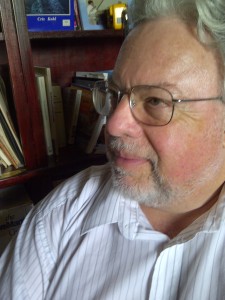
For 30 years Barry Gander has helped jump-start the development of advanced technology organizations in Canada and abroad. Working with companies, associations, the public sector and academia, Barry has established a network of leaders who thrive on cutting-edge initiatives. He is active in Canada, the U.S. and the Middle East. As EVP of Canada’s largest high-tech association, the Canadian Advanced Technology Alliance (CATA) Barry has helped showcase the best of Canadian innovation to global markets. The i-CANADA program, which he co-founded, aims to create an “Intelligent Nation” by establishing a grass-roots movement of communities that network at ultra-fast speed. Through this program, Barry works in some 50 cities, having established a Governors Council that is headed by a Premier who is assisted by Mayors and CEOs of large companies. He has authored several best-selling books and created new social networks, utilizing novel technology and tools.
EVP, Canadian Advanced Technology Alliance (CATA)
Co-Founder, i-CANADA
Founder, Networked Vehicle Association
bgander@cata.ca
http://icanada150.ca
www.cata.ca
Workshop-3: Intelligent Resilience
Alec Hay and Nicholas Martyn
Date: June 2, 2:00 PM – 3:30 PM
Abstract
The world is changing rapidly. Climate, economic and political uncertainty and increasing exposure to accidents are factors increasingly jeopardizing and degrading the effectiveness of the anti-poverty projects development agencies undertake. The development and humanitarian work we do today must be resilient to these changes if it is to have the desired effects over time. This seminar will examine the concepts of community resilience and how they relate to resilient infrastructure development planning. We will then explore how these core concepts can be applied to international development programmes to enable sustainable economic development and social stability, and how technology can support these strategies.
Alec. Hay
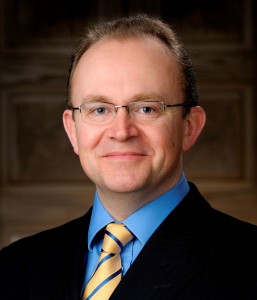
Alec Hay is a globally recognized leader in Operational Risk, Resilience & Security Planning. Toronto based, he is principal of Southern Harbour; and at University of Toronto, as an adjunct professor focused on infrastructure strategy and the operational resilience of communities and corporations.
Previously: DIALOG Resilience & Security practice leader. British Royal Engineers specialist for over 25 years in fortifications and infrastructure development in various global assignments—in the Americas, High Arctic, South Atlantic, Europe, North Africa, Middle East and Asia. He was also the infrastructure protection planner for the NATO estate in Afghanistan.
A Chartered Engineer with European Registration, he is also a Professional Engineer licensed in Alberta and Ontario. Fellow, mentor and peer reviewer of the Institution of Civil Engineers and the Institution of Royal Engineers. International Secretary of the Register of Security Engineers and Specialists.
Alec was the founding Director of the University of Toronto Centre for Resilience of Critical Infrastructure; Member of the Institution of Civil Engineers Capacity Building Panel, responsible for futuring civil engineering competencies in the 2025 international marketplace and beyond; and Founding Trustee of the Explora Foundation, and director of its veteran widows and orphans education charity, and research not-for-profit. He is a published author; and Member of the Most Excellent Order of the British Empire.
Nick Martyn

Following a 27-year career as a Canadian Army officer serving in a variety of operational and staff roles at the tactical, operational and strategic level Nick served on the Strategic Advisory Team Afghanistan. Working for the Office of the President he contributed to the Afghanistan National Development Strategy gaining World Bank and IMF approval for $21B of reconstruction funding at the Paris 2008 donor conference. Retiring from military service he returned to Afghanistan as the Executive Director of the Afghanistan Information Management Service where he designed and a geo-enabled program management system to manage Afghan infrastructure reconstruction.
In 2009, in response to the failures he observed in International Development Project Management he observed in Afghanistan, Nick co-founded the MBA for International Development Management program at the Sprott School (Carleton University). In 2010 he co-founded Proteus Geospatial in UAE, an international geospatial consulting company specializing in satellite bathymetry.
Returning to Canada in 2011 Nick founded RiskLogik, delivering risk and resilience software solutions to global clients. RiskLogik supports Canadian National Critical Infrastructure risk analysis at PS Canada, Emergency Management Ontario and Public Safety New Brunswick. As part of their Corporate Social Responsibility program RiskLogik researches risk and resilience in Global Development Aid, developing resilience risk analysis tools and techniques for use by global humanitarian and development agencies.
Workshop-4: Community Engagement Workshop
Alec Hay and Nicholas Martyn
Date: June 2, 4:00 PM – 5:30 PM
Workshop-5: Preparing Tomorrow’s Leaders for Humanitarian Technology
Dirk Werle and Wolfram Lunscher
TISP (Teacher In-Service Program) Canada
Date: June 3, 1:30 PM – 3:00 PM
Abstract
Science and engineering is the key contributor in the advancement of humanity. The need of innovation and talent in this area is growing. Unfortunately, across the world, the quality of enrolment in science and engineering at the postsecondary level is declining. A majority of the students studying in this area at the universities are not driven by a true passion for the subject but by other socio-economic factors. These students, when entering the workforce after graduation, could have contributed better if they had the real passion for the subject. This is an enormous system loss at the workforce and in the economy of the country at large. This may also slow down the advancement of science and engineering. Students should love science instead of having fear for it.
This workshop will demonstrate how professionals can help pre-university students love science and how the professionals can create sparks in young minds for innovating humanitarian technology. A unique feature of the workshop will be a hands-on lesson plan taken from the IEEE Try Engineering suite of lesson plans designed to aid teachers in presenting STEM subjects in a fun and relevant manner. The lesson plan will also serve as a great illustration of how professionals can support the community for humanity.
Dirk Werle
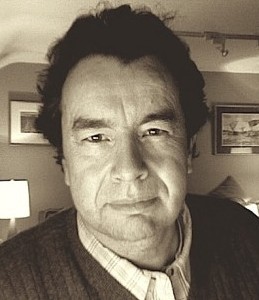 Dirk Werle is a geoscientist with Ærde Environmental Research in Halifax, with a Master of Science degree in Physical Geography from McGill University, Montreal. He taught air photo analysis and environmental remote sensing as a lecturer at universities in Germany and in Canada and worked as a consultant for the Canadian government. He is an Associate Fellow the Canadian Remote Sensing Society, a past-president of that Society, and a Senior Member of the Geoscience and Remote Sensing Society of the IEEE. he currently serves as Chair of the IEEE Canada Teacher In-Service Program (TISP).
Dirk Werle is a geoscientist with Ærde Environmental Research in Halifax, with a Master of Science degree in Physical Geography from McGill University, Montreal. He taught air photo analysis and environmental remote sensing as a lecturer at universities in Germany and in Canada and worked as a consultant for the Canadian government. He is an Associate Fellow the Canadian Remote Sensing Society, a past-president of that Society, and a Senior Member of the Geoscience and Remote Sensing Society of the IEEE. he currently serves as Chair of the IEEE Canada Teacher In-Service Program (TISP).
Wolfram Lunscher
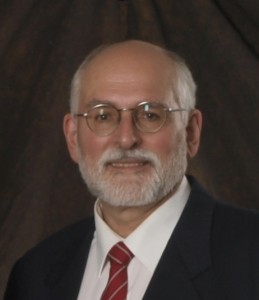 Wolfram is a senior systems engineer with a B.Sc. in physics (’74) from the university of Toronto, and a B.A.Sc (’80) and M.A.Sc (?83) in electrical engineering from the University of British Columbia. He has over twenty-six years engineering experience in a diverse range of projects, predominantly in the Canadian space industry, with companies such as Com Dev, EMS Technologies and Canadian Astronautics Ltd. These include data communication hardware flying on the International Space Station, a patented tracking algorithm developed for optical satellite communication that has been adapted to control the James Webb Space Telescope, and a radio science instrument aboard Canada’s CASSIOPE spacecraft.
Wolfram is a senior systems engineer with a B.Sc. in physics (’74) from the university of Toronto, and a B.A.Sc (’80) and M.A.Sc (?83) in electrical engineering from the University of British Columbia. He has over twenty-six years engineering experience in a diverse range of projects, predominantly in the Canadian space industry, with companies such as Com Dev, EMS Technologies and Canadian Astronautics Ltd. These include data communication hardware flying on the International Space Station, a patented tracking algorithm developed for optical satellite communication that has been adapted to control the James Webb Space Telescope, and a radio science instrument aboard Canada’s CASSIOPE spacecraft.
He currently holds senior member status within the IEEE, is an associate fellow of the AIAA, and is the TISP chair for the IEEE Ottawa section.
Workshop-6: iLUV (ieee Lights Up a Village)
Dave Irvine-Halliday, Robert Dick, and Kexing Liu
Date: June 3, 3:30 PM – 5:00 PM
Abstract
According to the World Bank and the International Energy Agency, over 1.3 billion people in the world have no access to electricity that is 18% of the world population. More than 95% of these people are either in sub-Saharan African or developing Asia and 84% are in rural areas.
The IEEE Canada Industry Relations Committee, the International Year of Light Canadian Committee, the IHTC 2015 Program Committee, LUTW, together with the IEEE Photonics Society Ottawa Chapter invites you to attend the workshop – iLUV on technologies and solutions for efficient, cost-effective, renewable electricity power generation and lighting.
Aspects to be discussed at the workshop include:
- Challenges and Solutions
- Field Deployment Experience
- Partnering with Technology Providers
- Possible Funding Sources
- Training of Local Technicians
- Volunteering Opportunities
- Future Technologies
Speakers of the workshop:
- Dave Irvine-Halliday, Founder & Executive Chair, Visionary Lighting & Energy India (P) Ltd. (VLE)
- Robert Dick, Founder and CEO, the Canadian Scotobiology Group Inc. (CSbG)
- Presider: Kexing Liu
Download the flyer: IHTC iLUV Workshop and please visit www.iluv.ieee.ca
- Dr. Irvine-Halliday was concerned about the people and the conditions they live in, so he used his photonics background to help locals have a better life by creating safe, healthy, durable and affordable lighting solutions. During this trip, Light Up The World initiative was born.
- Professor of Electrical Engineering at the University of Calgary
- Over 8000 homes have been light up thanks to Dr. Irvine-Halliday.
- Bolivia, China, Costa Rica, India, Mexico, Nepal, Pakistan, South Africa and many others.
Robert Dick M.Eng., P.Eng., FRASC
 Professional engineer with 40-year’s experience in avionics, spacecraft and instrumentation engineering, and recently, biology, ecology and bio-technical product development.
Professional engineer with 40-year’s experience in avionics, spacecraft and instrumentation engineering, and recently, biology, ecology and bio-technical product development.- Founded two companies – one creates astronomy education publications and the other focuses on luminaire development and manufacturing.
- Wrote papers and articles in peer reviewed journals and trade publications about the impact of artificial light on human health and regional ecology.
- Developed and authored the Parks Canada Guidelines for
- Outdoor Lighting (GOL) – adopted in the United States and is a basis for the Canadian and International Dark Sky Preserves.
- His “Eco-Light” luminaire by the Canadian Scotobiology Group is designed to be fully compliant to the GOL and draws on the unique attributes of modern light emitting diodes, optics, thermal engineering and manufacturing processes.
- Advocator of sustainable lighting solutions for the developing world.
Special Interest Group on Humanitarian Technology (SIGHT) Workshop-1
Humanitarian Robotics and Automation Technologies
Improving the Quality of Life for Humanity
Raj Madhavan
Date: June 4, 11:30 AM – 12:30 PM
Abstract
Robotics and Automation Technologies hold immense promise in transforming people’s lives across various communities around the globe. It is quite easy to get the public’s interest stoked when ‘robots’ are mentioned as robotics is seen as something sexy while evoking sci-fi type images. Consequently, there exists a huge disconnect between what is possible from an engineering and scientific viewpoint and what the expectations of the general public are. While the source of this disconnect can be conveniently blamed on Hollywood movies, the robotics community also can be held accountable, at least partly, for some of these confusions and exaggerations. It is my opinion that the academic and research entities have not done enough to educate the masses on what is realistic and what the limitations are. More fundamentally, the problem lies in the fact that we have not seen practical solutions that can be deployed in a truly useful and effective fashion towards making a difference in the quality of lives of people.
In this talk, I will describe my current work focusing on the applied use of robotics and automation technologies for the benefit of under-served and under-developed communities by working closely with them to sustain developed solutions. This is made possible by bringing together researchers, practitioners from industry, academia, and government and various entities such as the IEEE Robotics Automation Society’s Special Interest Group on Humanitarian Technology (RAS-SIGHT), NGOs, NPOs and other organizations and governments across the globe. I will share some of my efforts and thoughts on urban search and rescue, and disaster prevention, recovery, and response efforts, using Unmanned Ground Vehicles (UGVs) and Unmanned Aerial Vehicles (UAVs), respectively. I will provide an overview and describe the goals of RAS-SIGHT, its activities, and associated efforts. I will also discuss a recently held demining challenge that I co-organized with the intent of producing an open-source solution for detecting and classifying unexploded ordnance buried in minefields. A set of videos from several appropriate domains focusing on humanitarian applications will be featured.
Author’s Biography
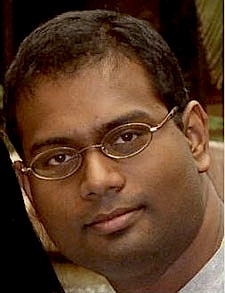 Raj Madhavan is a research scientist with the Institute for Systems Research, and a member of the Maryland Robotics Center at the University of Maryland, College Park. Currently he is on leave working on applying robotics and automation technologies for the benefit of humanity in a variety of domains. He has held appointments with the National Institute of Standards and Technology (March 2002-June 2013) and the Oak Ridge National Laboratory (March 2001-January 2010). He received a Ph.D. in Field Robotics from the University of Sydney, an ME (Research) in Systems Engineering from the Australian National University, and a BEEE from the College of Engineering, Anna University, India. Over the last 20 years, he has contributed to topics in field robotics, and systems and control theory. His current research interests include autonomous ground vehicle navigation in unstructured environments, performance evaluation and testing, benchmarking, and standardization of intelligent systems, and humanitarian robotics, particularly the development of applied robotics and automation technologies systems that are cost effective, reliable, efficient and geared towards improving the quality of lives of people in under-served and under-developed communities around the globe.
Raj Madhavan is a research scientist with the Institute for Systems Research, and a member of the Maryland Robotics Center at the University of Maryland, College Park. Currently he is on leave working on applying robotics and automation technologies for the benefit of humanity in a variety of domains. He has held appointments with the National Institute of Standards and Technology (March 2002-June 2013) and the Oak Ridge National Laboratory (March 2001-January 2010). He received a Ph.D. in Field Robotics from the University of Sydney, an ME (Research) in Systems Engineering from the Australian National University, and a BEEE from the College of Engineering, Anna University, India. Over the last 20 years, he has contributed to topics in field robotics, and systems and control theory. His current research interests include autonomous ground vehicle navigation in unstructured environments, performance evaluation and testing, benchmarking, and standardization of intelligent systems, and humanitarian robotics, particularly the development of applied robotics and automation technologies systems that are cost effective, reliable, efficient and geared towards improving the quality of lives of people in under-served and under-developed communities around the globe.
Dr. Madhavan has published and edited three books and four journal special issues, and over 170 papers in archival journals, conferences, and magazines. He has served as an invited independent judge for robotics competitions, has given numerous invited presentations in research organizations in several countries, has served on editorial boards and program committees of premier robotics, automation, and control conferences, and on several national and international panels and review boards. He has been serving as the Vice President of the Industrial Activities Board (2013-2016), Chair of the Standing Committee for Standards Activities (2011-2016), and since 2012 as the Chair of the Special Interest Group on Humanitarian Technology (SIGHT), all within the IEEE Robotics and Automation Society.
He can be contacted via email at <raj.madhavan@ieee.org>.
Special Interest Group on Humanitarian Technology (SIGHT) Workshop-2
Date: June 4, 12:30 PM – 1:30 PM
This workshop seeks to:
- Present the successes, challenges and tribulations of SIGHT leaders in establishing this IEEE program in the context of their section.
- Present the activities planned, those held and lessons learned from the community, partners and organizations.
- Reflect on IEEE’s current SIGHT strategy and how effective it is.
- Share their own vision or strategy for building public and member awareness of IEEE’s Humanitarian initiatives and encourage contribution of talent, time, or project funding.

